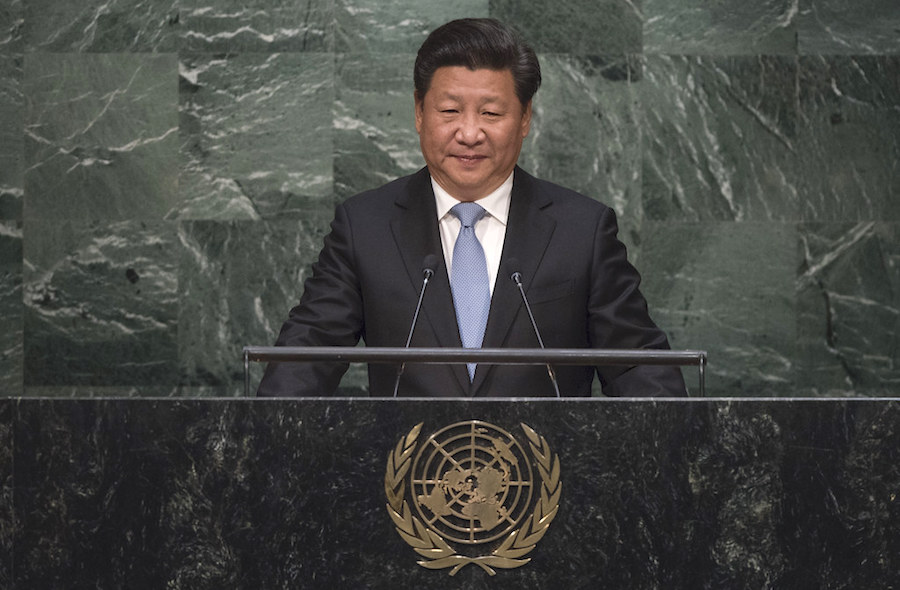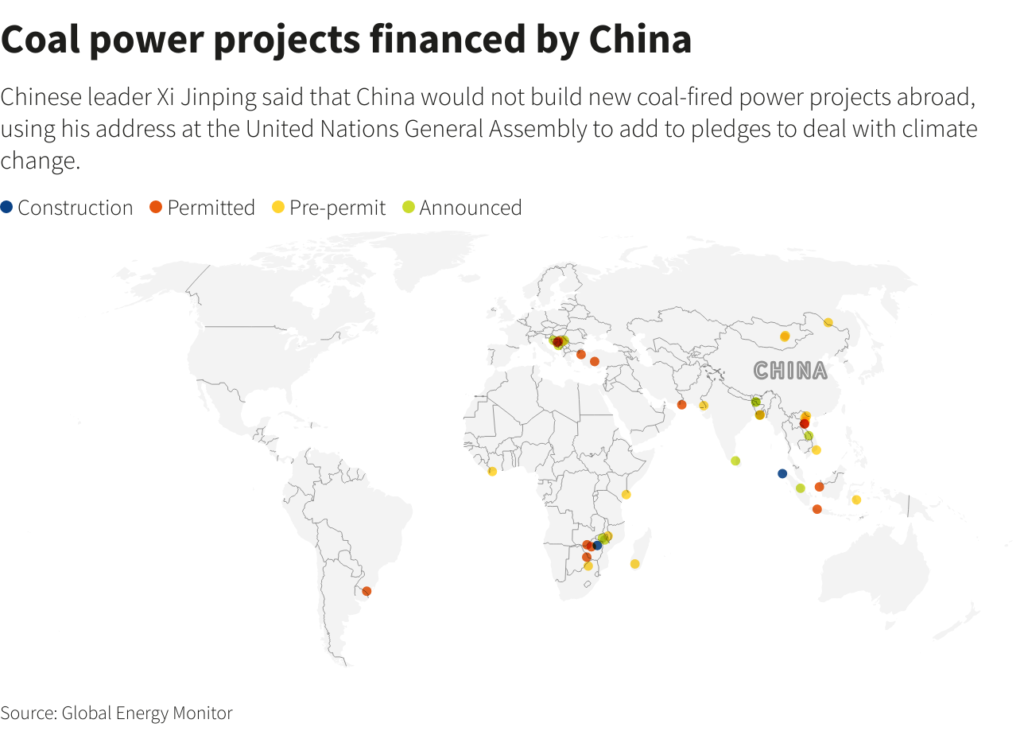China vows to end funding for overseas coal power plants

China’s president Xi Jinping has pledged to stop backing new coal power plants overseas in a move that would cut off a key source of financing for projects involving the fossil fuel.
“China will step up support for other developing countries in developing green and low-carbon energy, and will not build new coal-fired power projects abroad,” Xi told the United Nations General Assembly.
While the leader did not lay out a timeline to end that financing, he noted that Beijing has not directed any funding from its Belt and Road Initiative toward coal power plants so far this year.
Xi did not address either the domestic situation, where coal comprises a majority of the country’s electricity mix. Dozens of new coal-fired power and steel plants across the nation were announced during the first half of 2021. If built, they would alone add 150 million tonnes in annual carbon dioxide emissions, according to research group Global Energy Monitor.
The pledge by China, world’s largest emitter of greenhouse gases and the main financier of coal-fired power plants around the world, was cautiously welcomed by experts.
“This is the announcement China could deliver right now and the one that the U.S. wanted. Investment already trending in this direction,” Joanna Lewis, an associate professor at Georgetown University and an expert on Chinese climate policy, tweeted.

Climate advocacy movement 350.org called Xi’s declaration “huge,” saying it could be a “real game-changer” depending on when it takes effect.
“China was the last man standing. If there’s no public finance of coal from China, there’s little to no global coal expansion,” said Justin Guay, the director of global climate strategy at the Sunrise Project, a group advocating for a global transition from coal and fossil fuels.
Beijing has supported coal projects in developing countries including Indonesia and Bangladesh and has been under heavy diplomatic pressure to put an end to the financing to help the world meet the goals of the Paris climate agreement to reduce carbon emissions.
“We’ve been talking to China for quite some period of time about this. And I’m absolutely delighted to hear that President Xi has made this important decision,” US climate envoy John Kerry said in a statement.
Down but not out
With countries across the globe enduring power availability shortages, BMO Capital’s commodities analyst Colin Hamilton said it was clear that thermal coal will likely remain a key source of energy for foreseeable future.
“China will continue to finance energy projects overseas, with a push toward developing green and low-carbon energy projects, which could give rise to further nuclear power installations in addition to ‘renewable’ power,” he wrote.
“China’s pledge could affect both demand and supply in the seaborne market and pressure long term prices”
Wood Mackenzie analyst Shirley Zhang
China’s pledge could affect both demand and supply in the seaborne market and pressure long term prices, energy and mining consultancy Wood Mackenzie warned.
According to WoodMac analyst Shirley Zhang, projects that aren’t financially committed and rely heavily on foreign investment such as projects in Indonesia and Vietnam would be most affected.
“In particular, our assumption of 29 GW generic coal projects in Indonesia after 2025 could be at risk due to China’s pledge, forcing more Indonesian coal supply to the export markets,” she said in an emailed statement.
China’s policy change, part of a goal to reach peak coal consumption by 2030 and carbon neutrality by 2060, comes on the heels of similar pledges by Japan and South Korea earlier this year.
The pledge, which could wipe out nearly $50 billion of investment, is expected to bring momentum to the global climate talks this November in Glasgow, Scotland.
{{ commodity.name }}
{{ post.title }}
{{ post.date }}




Comments